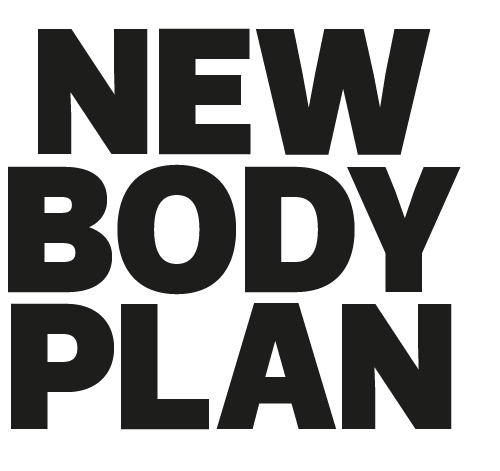Get fitter, healthier and happier with a journal
With a journal it’s possible to achieve any personal or professional goal. Here’s how to start your journal and keep it going to unlock the fitter, healthier and happier life you want, says New Body Plan’s Joe Warner
In your quest for greater health, fitness and wellbeing, the pen may well be mightier than the dumbbell. Why? Because keeping your own health and fitness journal, although seemingly innocuous, can be the most influential and impactful weapon in your arsenal to help you achieve all your performance and physique goals. A journal provides structure, cultivates self-awareness, and provides tangible proof of your progress. Read on to discover how a humble notebook can serve as your roadmap to achieving the fitter, healthier and happier life you want!
TL;DR A health and fitness journal acts as a personalised blueprint for your wellness goals. It tracks not only workouts, but also nutrition, sleep, mood, and more, highlighting patterns that help optimise your health routine. The golden rule? Consistency. Regular entries reveal the insights necessary to tailor your approach and unlock your full potential.
What should I record in a health and fitness journal?
Your health and fitness journal should be as comprehensive as possible, encompassing various facets of your wellness journey. This includes your daily exercise routines (types, intensity, duration), dietary habits (what and when you eat), hydration, sleep patterns, recovery status, and mood variations. Noting personal feelings pre and post-workout can also provide insight into how your routines impact your mental state.
Additionally, you may want to jot down specific goals, progress pictures, and any physical changes you observe. Remember, the more detailed your records, the more valuable your journal becomes in fine-tuning your fitness strategy. As one study in the Journal of the Academy of Nutrition and Dietetics stated: “Self-monitoring in weight loss was consistently and significantly related to weight loss outcome.”
Boost serotonin quickly and naturally to look and feel great
How can a health and fitness journal improve my workout routine?
A fitness journal provides a clear view of your current workout habits, enabling you to identify areas of strength and areas needing improvement. Recording your workouts helps ensure that you’re consistently challenging yourself and avoiding the pitfalls of routine. As your records grow, you’ll be able to spot trends, understand the conditions under which you perform best, and adjust accordingly. According to a study published in PLOS ONE: “self-monitoring influenced exercise levels positively.”
Is a digital journal as effective as a traditional paper one?
The effectiveness of a journal, be it digital or paper, largely depends on personal preference. Some people enjoy the tangibility of a paper journal and find the act of physically writing therapeutic. Others prefer the convenience, portability, and additional features of digital apps – such as reminders, visualisations, and community engagement. There’s no “one-size-fits-all” approach here; choose the method that you’ll be most consistent with.
What are the psychological benefits of keeping a journal?
The psychological benefits of journaling are immense. Tracking your progress can boost motivation, reinforce commitment, and promote a sense of achievement. Reflecting on your entries can also improve self-awareness, aiding in understanding patterns related to mood, energy, and overall mental wellbeing. Journaling can even act as a form of catharsis, according to a study in Psychosomatic Medicine, which found that expressive writing resulted in “significant health benefits.”
How can a journal help with goal setting and achievement?
A journal acts as a roadmap for your fitness journey, guiding you from setting goals to achieving them. Writing down your objectives makes them more tangible, while tracking your progress keeps you accountable. Plus, seeing how far you’ve come can provide the motivation needed to push forward.
Can a journal assist in managing and improving mental health?
Absolutely. A fitness journal offers space to explore the connections between physical activity and mental wellbeing. It can help identify triggers for stress, anxiety, or low mood, and illustrate the mental benefits of regular exercise. Moreover, it provides an outlet for self-expression, encouraging mindfulness and introspection.
What are the best methods and formats for a health and fitness journal?
Your journal should be tailored to your individual needs and goals. Start simple: record dates, exercise details, food intake, sleep, and mood. Over time, you might expand to include reflections, goal tracking, progress photos, etc. Templates can be useful, but don’t feel bound by them. Your journal should serve you, not the other way round.
4 ways to get the most out of your fitness journal
Start your journal strong
The easiest way to start your journal – and keep going – is to find some time that suits your regular routine. It may be as soon as you wake up or once you’ve eaten breakfast, or when you get in at the end of the day, or before getting into bed. It doesn’t matter when or where you do your journal. The only thing that matters is that you do it! Here are three other ways to achieve all your personal and professional goals.
Always keep your journal in sight
Journaling has the biggest positive benefits when it’s done consistently. And you’re more likely to do your journal if it’s in sight and easy reach. Leaving it on your bedside table with a couple of pens will make your morning and evening entries easy to do, or you could even carry it in your work bag so you can journal when commuting or during some spare moments in the day.
Avoid any distractions to keep your journal
Doing your daily journal entries doesn’t take long, but you do need to be fully focused to get the greatest benefits. Move your phone and laptop away or turn off your notifications to give you some distraction-free time to fully engage with your journal. Doing it quickly and/or without your full attention won’t deliver those big benefits you want.
Write openly and honestly
As well as improving your life, keeping a journal can help you have closer and deeper relationships with your friends and family, especially if they start their own journals too! Talking more about your thoughts, feelings, ambitions, fears and worries with people who care about you can help you focus on what you want out of life, and deal with challenges and difficulties.
Find your perfect fat-loss plan!
Take the New Body quiz!
Train for your body type for your ultimate body transformation

